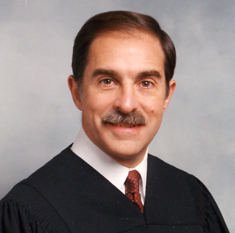A case involving the bad faith claims of a woman suing on behalf of a now-deceased
individual who was injured in a car accident 16 years ago in Philadelphia has all but come to an end, with a federal judge granting summary judgment to the insurance company that had been accused of failing to pay out an uninsured motorist claim.
U.S. District Judge Harvey Bartle, III, sitting in the Eastern District of Pennsylvania, entered judgment in favor of Liberty Mutual Insurance Co. and Liberty Mutual Fire Insurance Co., which were defendants in a suit filed in late August 2011 by New Jersey resident Barbara Quinn.
Quinn had alleged that the insurers failed to pay benefits under an insurance policy issued to Quinn’s decedent, Theresa Thompson.
Thompson – the relationship between the two women does not appear to be divulged in court papers – had allegedly been injured in a car accident in Philadelphia back in 1997 with an uninsured motorist.
At the time of the accident, Thompson, who resided in New Jersey, held an insurance policy in the Garden State with the defendants, the record shows.
Quinn, in her federal claim filed years later, alleged that Liberty Mutual acted in bad faith under Pennsylvania law when it refused to pay an arbitration award for uninsured motorist benefits entered in the plaintiff’s favor back in early February 2003.
Allen L. Feingold, a since-retired lawyer who had worked on Thompson’s behalf prior to her death, and was initially a co-plaintiff in the pro se federal complaint filed by Quinn, was forced to attempt to compel arbitration against another insurer, Allstate, following Thompson’s arbitration award because Liberty Mutual, in refusing to pay the award, asserted that Thompson had also alleged other insurance coverage available from Allstate at the time, Quinn’s complaint had stated.
In August 2004, Philadelphia Common Pleas Court Judge William Manfredi dismissed the petition against Allstate because of uncertainty regarding the nature and/or eligibility of Thompson’s coverage under the Allstate policy, the record shows.
Manfredi further directed Thompson to file a petition to confirm the arbitration award against Liberty Mutual so that judgment could be entered on the award, according to background information contained within Quinn’s federal complaint.
Thompson ended up becoming seriously ill and died in 2006, court papers state.
Meanwhile, Quinn, in early June 2011, petitioned the state court for confirmation of the $95,000 arbitration award against Liberty Mutual.
A Philadelphia judge entered judgment on the award later that month.
The defendants never filed a response to the petition and lodged no objection to confirmation of the award, Quinn stated in her complaint.
It wasn’t until August 2011 that Liberty Mutual filed what Quinn termed an “out of time” reconsideration motion and emergency motion to stay execution at the Philadelphia court.
The trial court granted the reconsideration request on Aug. 8, 2011, and vacated the earlier judgment.
Quinn filed her own motion for reconsideration, but it was subsequently denied, and to this day, Quinn claimed in her federal complaint, the insurers have yet to pay “even a penny” of the arbitration award, “despite the fact that they are incontrovertibly liable for the payment of such award.”
In his ruling, Bartle, the federal jurist, wrote that the defendants had argued that they had believed New Jersey law was applicable, since that’s where the insurance policy was held, which permitted them properly to reject the arbitration award and demand a trial.
New Jersey has no specific bad faith statute like Pennsylvania does, although its courts recognize a common law cause of action for breach of the implied duty of good faith and fair dealing arising out of a contract, Bartle’s memorandum notes.
Bartle wrote that the court need not decide whether Pennsylvania or New Jersey law is applicable in this case, however, since the plaintiff, who ultimately has the burden to prove bad faith, has failed to come forth with evidence sufficient to create a genuine dispute of material fact as to her claim under the law of either state.
“A plaintiff opposing summary judgment must identify specific facts in the record which, if believed, would allow a reasonable jury to find in her favor,” Bartle wrote. “She may not merely deny the assertions made by the defendant.”
And in her two-page brief in opposition to the summary judgment, Quinn does nothing more than do just that, deny the defendants’ assertions, the judge wrote.
“Nowhere in her brief does plaintiff identify any facts in the record which would support her claim for bad faith,” Bartle wrote. “She merely states that ‘defendants’ refusal to pay the arbitration award here presents issues of fact regarding whether such refusal was frivolous or unfounded.’
“She does not point to any evidence that could support the required elements of a bad faith claim. As such, summary judgment in favor of defendants is appropriate.”
Judge grants summary judgment to Liberty Mutual Insurance Co. in bad faith case dating back to mid-90s

ORGANIZATIONS IN THIS STORY